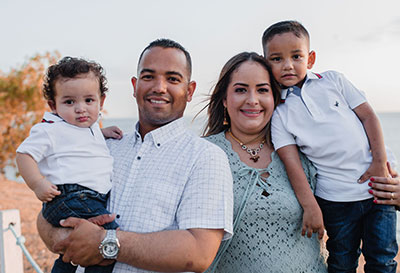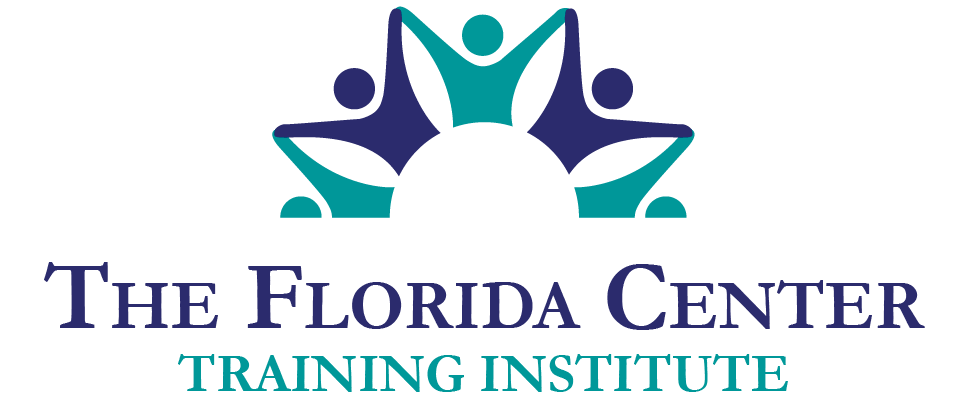Early childhood training courses for practitioners, educators, parents & caregivers
Understanding a Child’s Strengths and Challenges
The Florida Training institute offers many Early Childhood courses geared toward practitioners, educators, and caregivers and parents/foster parents.
The following is a list of available courseware. Customized courses can be designed and delivered in an on-demand, virtual or onsite basis. Courses can also be
developed as CEU modules. Please check our calendar frequently to see currently available courses and symposia.

Clinicians and Other Welfare Professionals
The following trainings may include continuing education credits.
Attachment in Early Childhood
This presentation explores secure, insecure, and disordered attachments between a child and their caregiver and the role that those attachment relationships play in the child’s development of emotional regulation. (Length varies)
Complex Trauma in Early Childhood
This presentation explores early childhood and its long-term implications for a child’s development, future relationships, physical and mental health and offers evidence-based training on sustainable, positive changes in a child’s developmental trajectory. (Length varies)
Families Moving Forward (FMF) Foundations FMF Foundations (formerly the Families Moving Forward (FMF) Program) is a CDC-recommended, evidence-based behavioral intervention for families raising children (ages 3 to 13) with prenatal alcohol exposure (PAE) or FASD, and challenging behavior. Best suited for mental health providers. It offers ready-to-use materials and clinical strategies that are well organized to support families navigating complex situations, including early adversity and family stress. (Training duration is 6 days) For more information visit: https://familiesmovingforwardprogram.org
Infant Mental Health
Child welfare advocates and mental health professionals will gain a better understanding of a child’s early development stages (ages 0-3); the critical importance of parent/child relationship-focused treatment; and how to address developmental delays and disorders that are common in children in the welfare system. (Length varies)
Recognizing Fetal Alcohol Spectrum Disorders
Participants will learn to distinguish between FASD and FAS; identify at least three characteristics of FAS; identify cognitive deficits and behavioral manifestations typical in children with prenatal alcohol exposure, and receive an introduction to diagnosing FASD/FAS and providing early interventions. (2-8 hours)
Role of an Early Childhood Court Clinician
This training provides clinicians and other child welfare professionals with an increased understanding of the role of the Early Childhood Court (ECC) clinician and impact of infant and early childhood mental health in dependency court. (2-4 days)
Rutgers University Adoption Competency Training
This Certificate Program benefits mental health professionals, targeted case managers, child welfare staff, adoption case managers, and other community professionals who work with adoptive children and their families. (5 days)
Trauma Informed Care
Professionals working with young children and their families will gain a better understanding of the effects of trauma exposure on brain development, social emotional development, and physical development. (Length varies)
Trust-Based Relational Intervention (TBRI)
TBRI seeks to address the physical needs and disarm fear-based behaviors in vulnerable children through an attachment-based, trauma-informed approach that is based on sensory processing and neuroscience research. (Time TBD)

Tools for Educators
The following trainings are available for educators and other school professionals and may include continuing education credits:
Incorporating Mindfulness in the Classroom
This presentation explores secure, insecure, and disordered attachments between a child and their caregiver and the role that those attachment relationships play in the child’s development of emotional regulation. (Length varies).
Recognizing FASD in Students
Educators gain a better understanding of Fetal Alcohol Spectrum Disorder, its effect on a child’s development and recommended practices for ensuring the best possible outcomes in the classroom. (2-8 hours depending on the depth of presentation)
Understanding and Building Resiliency in Young Children
Educators will learn to promote resiliency in their students as a protective factor against violence and coping mechanism for early childhood stress and trauma, equipping them with the skills they need to navigate through crises and produce healthy outcomes. (1-3 hours)

Classes for Parents & Caregivers
The following trainings are available to help parents and caregivers use best practices when nurturing the development of their young children, especially those that have experienced trauma and/or have special needs.
ACT Raising Safe Kids
ACT is an early childhood parenting program, directed by the American Psychological Association that builds positive, nonviolent parenting skills in order to prevent or reduce aggression and related behavior problems in children ages 0-8. (2 days)
Interventions for FASD
Parents and caregivers of children with in utero exposure to alcohol will gain a better understanding of FASD and how it can affect areas of a child’s development while also learning about the importance of early intervention in order to ensure best possible outcomes in their children. (2-8 hours depending on the depth of presentation)
Click here to sign up for our e-newsletter to learn about upcoming trainings, webinars, and more!
CONTACT THE FLORIDA CENTER TRAINING INSTITUTE
941-371-8820 x 1002 | training@thefloridacenter.org
4620 17th St. Sarasota, FL 34235
